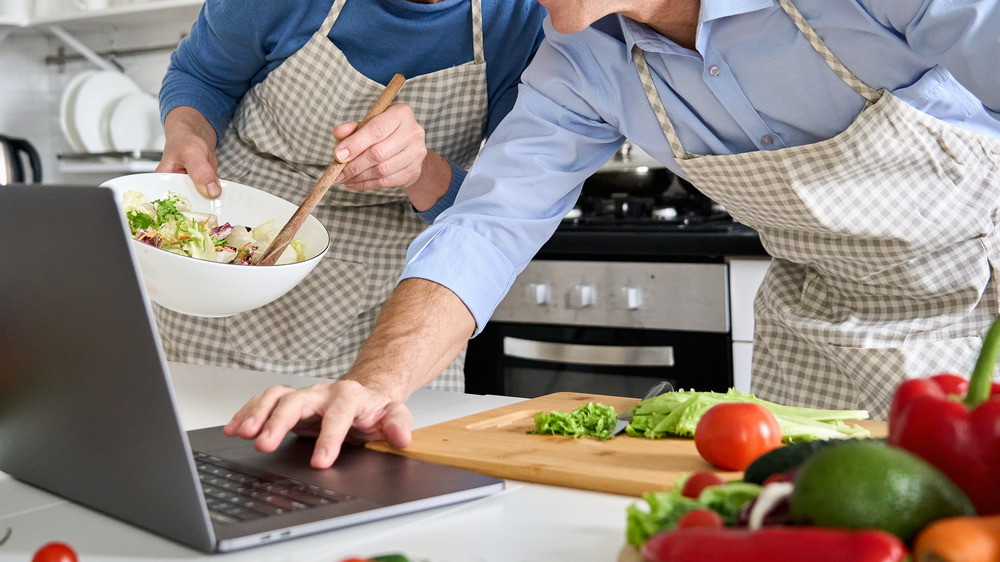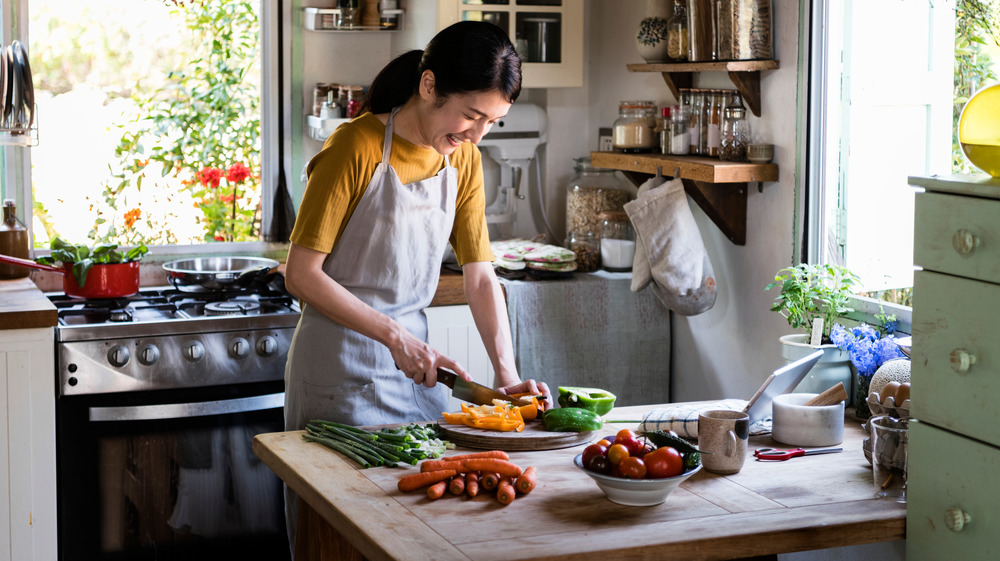The Real Reason People Are So Unhappy With Recipe Copying Apps
We could say the site developers had good intentions because their brainchild was meant to help recipe hunters by tracking down blogs, cutting through what some might have felt was "noise" created by sharing personal experiences, and instead presenting just the recipes. In the words of site creator Tom Redman, "Two friends and I created a new thing to fix online recipes[:] recipeasly.com – your [favorite] recipes except without the ads or life stories" (via Twitter).
Suffice it to say that the announcement didn't go down very well with the Twitterverse, who told Redman exactly how they felt about his "fix." Voices were led by Food & Wine's senior editor who said, "Wait, so you are just stealing content, eliminating context and creator revenue, and diminishing the labor that is the only way these recipes exist in the first place because you have decided the humans behind them are annoying?" Another Twitter user lashed out, saying, "Online recipes aren't broken. A**holes who demand everything free to them without throwing a food blogger a penny or two via ad impressions are the problem. Complaining about food blogs is the problem. Finding shortcuts to cut down bloggers income is the problem." A third got snarky, calling out the Redman for his creation: "'Think I'll repackage someone else's work and call it a personal achievement' is about as white as an idea gets. Congrats on the ratio, Crisco Columbus."
The site might have gotten into legal trouble
The site did get taken down rather quickly, but Redman and his idea didn't have their supporters. PoorCouplesFoodGuide argued that the site was a good idea because "no one expects to hear 10 minutes of personal soliloquy by a lead singer before getting to an actual song, when they listen to a new album. People who are invested will go out and find that info. Foisting it onto people and expecting them to accept it without complaint is selfish."
At the end of the day, taking the site down before it took off might have been an act of mercy because as Eater points out, the nascent Recipeasly would have gotten into legal trouble anyway. Tech lawyer Mark Blunden told the BBC that the act of creating and posting a recipe online, the recipe itself, along with its images, would have been subject to copyright protection so by extension, doing what Recipeasly had wanted to do would have created problems.
The distinction between sharing and taking
It might have helped Redman and his two friends if they had consulted Chef Google to learn more about copyright and food blogs. Noted cookbook writer David Lebovitz spent a considerable amount of time outlining what was kosher and what wasn't when it came to copying and pasting recipes online (via Lebovitz's website). He cites U.S. copyright law, which said that while providing a list of ingredients were not protected by copyright law, a "substantial literary expression" which includes recipe instructions is.
Leibovitz also emphasizes the difference between "sharing" and "taking." "Think of it as having a recipe box," he says. "If you're visiting someone's house and love their apple pie recipe, you ask for the recipe. You don't wait for them to leave the room and swipe it from their recipe box, then type it up for a magazine and call it your own. It's not okay to copy a recipe word-for-word and publish it in a book, newspaper, or online, on a website or blog."
At the end of the day, as one food blogger expressed on Twitter, "Recipes are life stories. They tell the stories of generations of families who created dishes that represents a culture. Life stories also are part of SEO which help food bloggers, mostly women support their families." While that may not be true of all food blogs, it is respectful to give the readers a chance to work that out for themselves.


